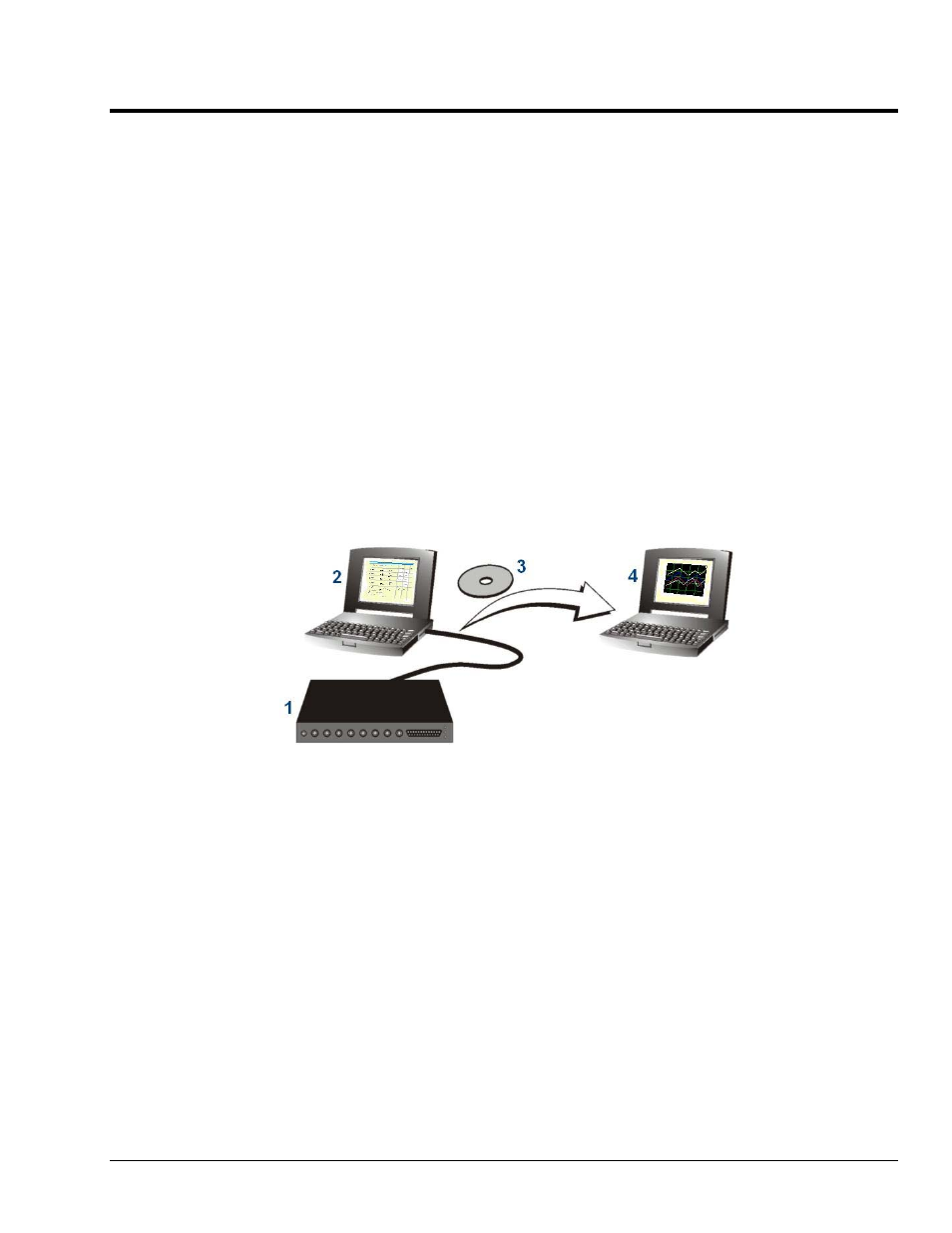Postview, Overview – Measurement Computing PostView User Manual
Page 3

PostView User’s Guide
907293
3
PostView
Overview …… 1
System Requirements …… 4
Installation ……4
Layout and Controls …… 5
Understanding the Status Bar …… 8
Changing Display Parameters …… 9
Overview
PostView is a time-domain post-acquisition data viewing application that can be integrated with primary data
acquisition software, including DaqView, Personal DaqView, ChartView, LogView, and WaveView. The viewer
provides a means of setting up several display pages, each with one or more scopes and single or multiple channels
to view as Analog, Counts, or Logic traces (with one type per scope). You can set up PostView to run from your
data acquisition program’s ViewData button. Configuration instructions follow shortly.
Note that you cannot mix channel types within a scope. Attempting to do so will result in a message stating, for
example, Only Analog Channels can be added to an Analog Scope.
The PostView Concept
(1) Data acquisition device, such as a WaveBook, LogBook, DaqBook, or ChartScan unit.
(2) PC with data acquisition software, e.g., WaveView, LogView, DaqView, ChartView
PostView can set to start from their ViewData button.
(3) A disk of data files (raw binary)… or, simply data files stored in the PC.
(4) A PC with PostView installed. PostView can be used to view acquisition
data from files on the PC’s hard drive or from a disk.
The PostView application provides easy-to-use post-acquisition analysis capability. Depending on the version used,
you can display up to 8 time-domain function windows and display up to 16 channel traces per window. Data is
automatically scaled to optimize its fit in the window. Features of the program include:
• File Input Format Support for: DaqView, WaveView, Personal DaqView, ChartView, DaqCOM2
• Up to 8 Display Windows
• 16 Channel Traces per Display Window
• Automatic Data Scaling
• Configurable Data Display for channels and trace colors
• Multiple Tiling of display windows
